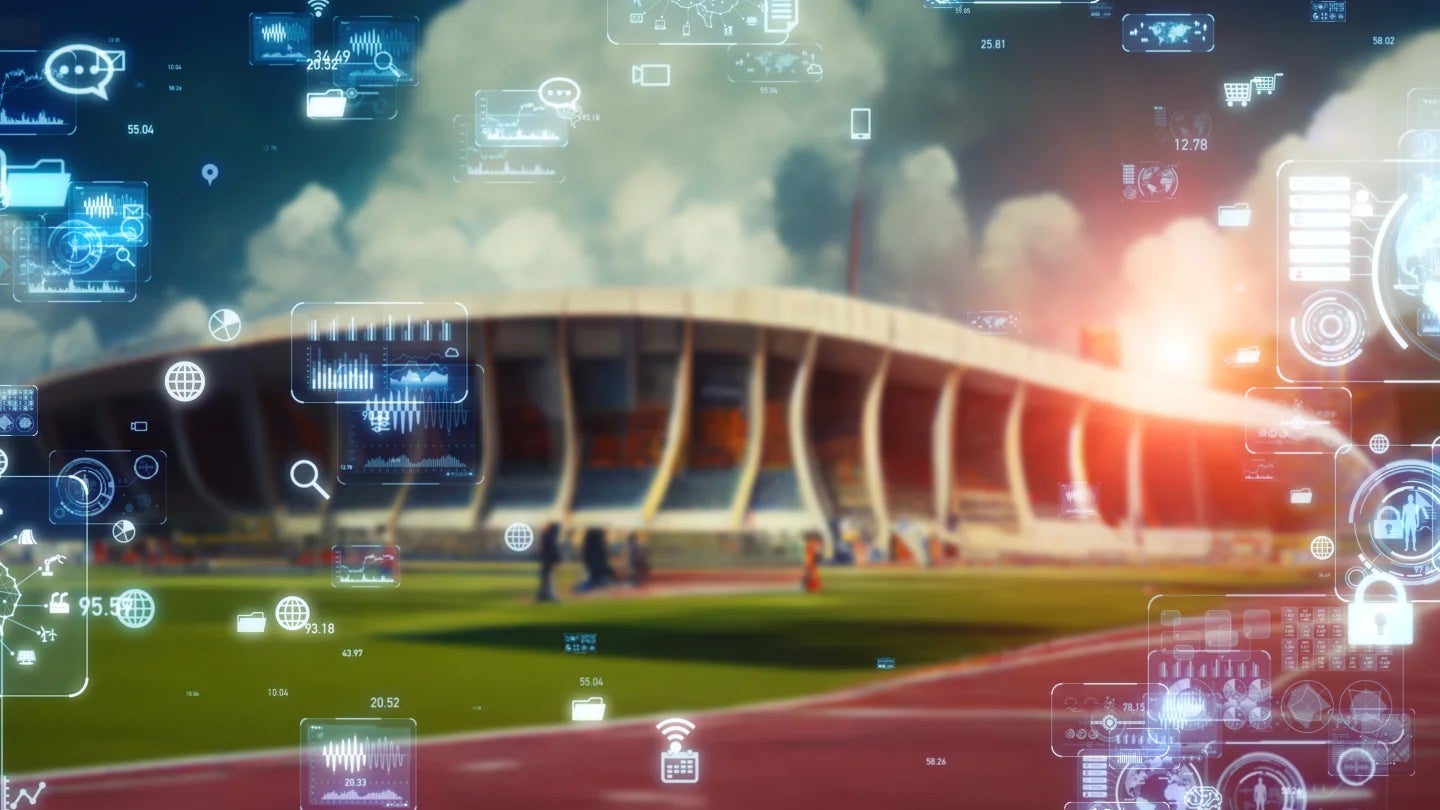
The sports industry will undergo “profound" change over the next decade powered by the technologies of Industry 4.0, according to a new report.
The 2024 edition of GlobalData's Future of Leisure report predicts that the experience of sports fans will undergo a paradigm shift, owing to a plethora of Internet of Things (IoT) technologies – from artificial intelligence (AI)-powered commentary and translation to cutting-edge augmented reality (AR) and virtual reality (VR) fan experiences to enhance viewing experience, such as the ability to recreate iconic moments from the players' perspectives.
According to the report: “Tech-enhanced sports stadiums will become a reality. 6G will provide the low latency and high bandwidth needed for AI, AR, IoT and robotics-enhanced venues.”
It also forecasts that frictionless entry will become the norm for stadium-goers, alongside AI payments, service robots, digital signage and even AI-powered real-time sports betting.
Romilly Leech, thematic analyst at GlobalData, commented: “6G networks will facilitate seamless transmission of 16K resolution broadcasts, providing unmatched connectivity, speed and quality for media consumption. This will enhance the viewing experience for fans both inside and outside the stadiums, making high-quality broadcasts more accessible and engaging.”
“Alongside this, AI-powered systems will be integrated into stadium operations, enabling features such as real-time commentary translation, personalised sponsorship messaging and frictionless entry processes. Additionally, robots may be utilised for various roles, including guiding visitors and improving security systems.”
As increased technology use opens up cyber risks, sports organisations are expected to partner with IT vendors to ensure that they are cybersecure.
Leech adds: “The most significant change will be the integration of AI and machine learning technologies across all aspects of stadium operations and fan engagement. From real-time analytics to personalized experiences, AI will fundamentally alter how fans interact with sports, enhancing engagement and providing tailored content that resonates with individual preferences.”
For example, personalised sponsorship messaging will be available across all sports coverage, and the report forecasts that core broadcast commentary will be translated in real-time using AI into every major language. AI-translated commentary can also be based on the voices of leading commentators, who are expected to sign lucrative contracts to facilitate this.
Broadcasts are forecast to offer AR-enhanced alternatives, with betting-oriented live broadcasts that overlay real-time AI-powered odds on the screen with custom commentary or even child-friendly versions that include graphics for educational and entertainment purposes.
In addition, the increased influence of sustainability concerns on consumer choices will drive stadiums to adopt environmentally friendly practices such as selling environmentally and socially sustainable merchandise production and packaging. Stadiums are also expected to run on 100% renewable energy in the future and optimise energy efficiency with AI and IoT use.
These technologies have already started to be implemented. The 2022 World Cup in Qatar saw the introduction of the FIFA+ Stadium Experience, as part of which spectators at matches could scan the fields with their mobile devices to access a live AR overlay graphic displaying real-time player and team statistics through the FIFA+ app.
While the stadium tech startups with innovative IoT technologies that will drive this paradigm shift have not penetrated the mass market yet, this is expected to change by 2035.



